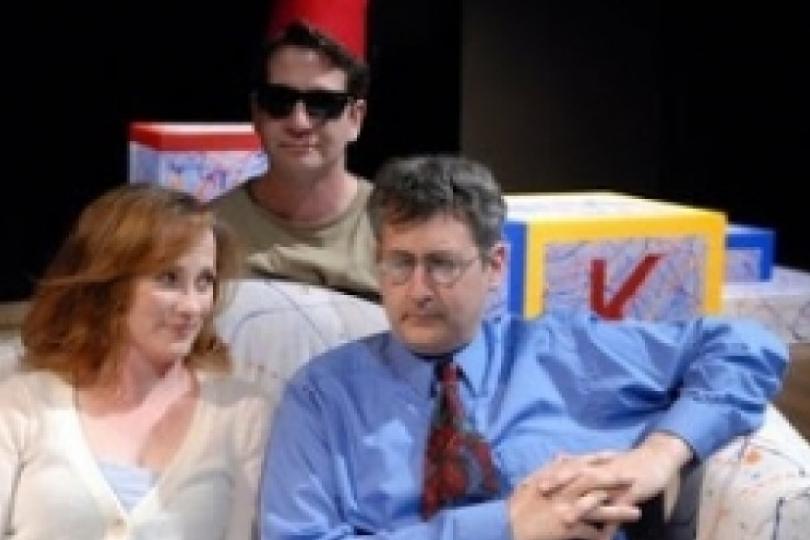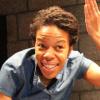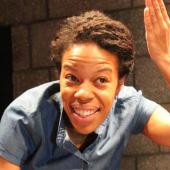And the world splits open
Editorial

In 1980, no miserable adolescent character out of a John Hughes movie had anything on me. The one saving grace of high school was being fortunate enough to have some exceptional teachers.
My English teacher, Mr. Linne, recognized early on that my best girlfriend and I seemed to march to the beat of our own drums. So, while the rest of the class read How Green Is My Valley, he assigned us Tess of The D’Ubervilles. Thomas Hardy engaged and fueled our angst. I’m thinking in response, Linne wanted us to experience a woman’s story told from woman’s point of view and sent us off to the theater.
The play was For Colored Girls Who’ve Considered Suicide When The Rainbow is Enuf, by Ntozake Shange, It was my first time at The Mixed Blood Theater and the first show I had ever seen with an all black, female cast.
Shange’s piece is a series of monologues spoken by women - each dressed in a different color of the rainbow. The stories were so strong and gut-wrenchingly honest that it broke my heart. The prison window of my high school existence was opened. It affirmed what I suspected, that there was a world bigger and more important than who sat next to you at lunch and what size Gloria Vanderbilt jean you fit into.
That play stayed with me through high school graduation and I suspect it factored into my decision to major in Women’s Studies. When I saw “Black Women Playwrights” being offered amongst the Women’s Studies electives, I registered for it, in hopes that I would get more of what I got from Shange.
The professor was Endesha Ida Mae Holland. In the early 1960’s, she was one of the highest paid black prostitutes in Mississippi, at five dollars a trick. When the Civil Rights Movement came to town, she was recruited to register voters. Eventually, Endesha was marching with Martin Luther King Jr. She was arrested many times for “parading without a permit," which would later become the subject of one of her plays.
Endesha’s mother was the midwife for the black community, as most blacks were not allowed into the white-only hospitals. Regardless, her mother was so skilled that these hospitals would call on her anyway when there was an exceptionally difficult birth. This earned Endesha’s mother the nickname Second Doctor Lady. Endesha’s mother perished in a fire when the Klan burned down her home, due to Endesha’s involvement with civil rights.
Endesha came to Minnesota and enrolled at the University of Minnesota. She took a playwriting class because she thought it would be an easy credit. From that first course was born a prestigious playwriting career, including the play, Second Doctor Lady.
Shange's and Holland’s words soaked into my soul. Possibly the most useful lesson for me I learned from Endesha: you didn’t need a Yale Drama degree to be a playwright, all you need is a story and a way with words.
I was also enrolled in a course instructed by poet Toni McNaron who shared a quote from Muriel Rukeyser - “What would happen if one woman told the truth of her life? The world would split open.” At twenty years old, I didn’t understand this quote, because I had no truth or story - yet.
I had absolutely no aspiration or intention of ever writing a play. Higher education, done right, fills the brain with all kinds of seeds, forming all kinds of growth that the student may not even know is taking root.
Nearly thirty years later, I found myself in front of the keyboard. A mother of four. My eldest with autism. Now I had a story. And because of these women and their courage, now I had a truth to tell. I took a deep breath and remembered my college professor: once a prostitute, now a playwright. Then I repeated Rukeyser’s words.
Autistic License was written in 2005 and produced that year by The Illusion Theater’s Fresh Ink program - just as Endesha’s play had been years before.
I have been privileged to see the play sprout legs and travel to venues across the country. The greatest honor has come from audience members who send notes and cards telling me that Autistic License speaks to their experience or has touched them in some way.
In what Oprah would call “a full circle moment,” I now sit on the Disability Council at The Mixed Blood Theater working towards making the theater experience more inclusive to individuals with disabilities.
Theater is a medium that changes lives. Good theater will entertain, educate, make us question. Great theater can inform how we proceed with our lives.




